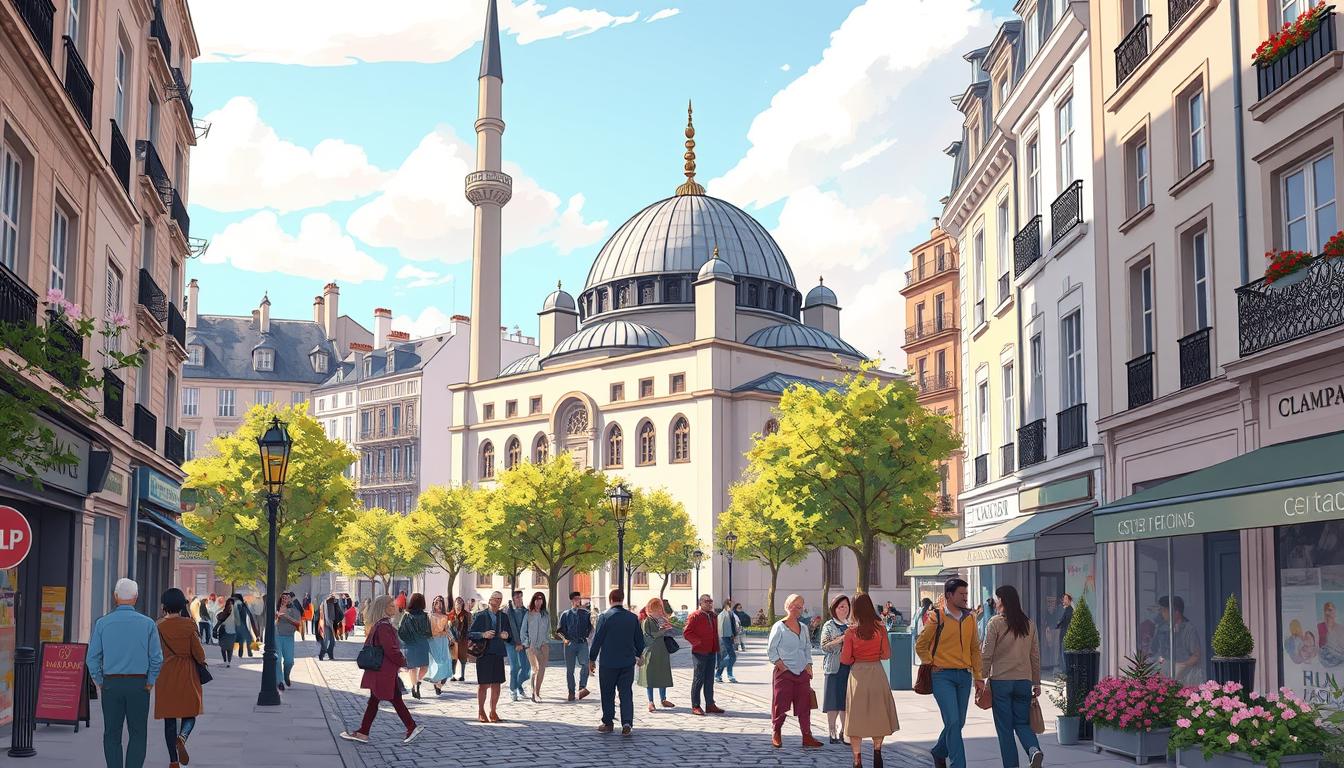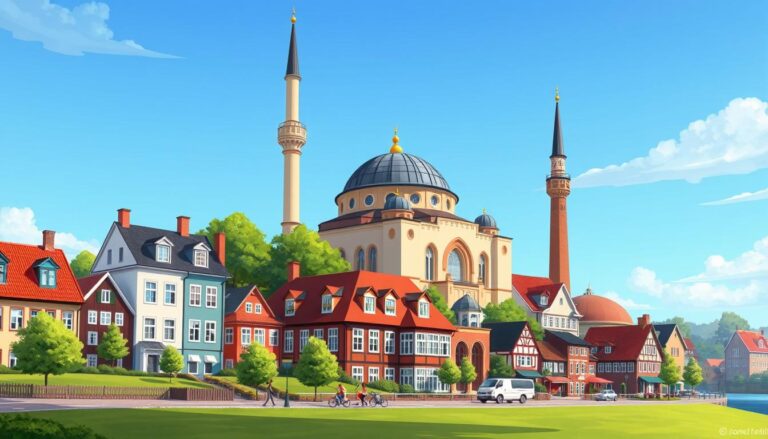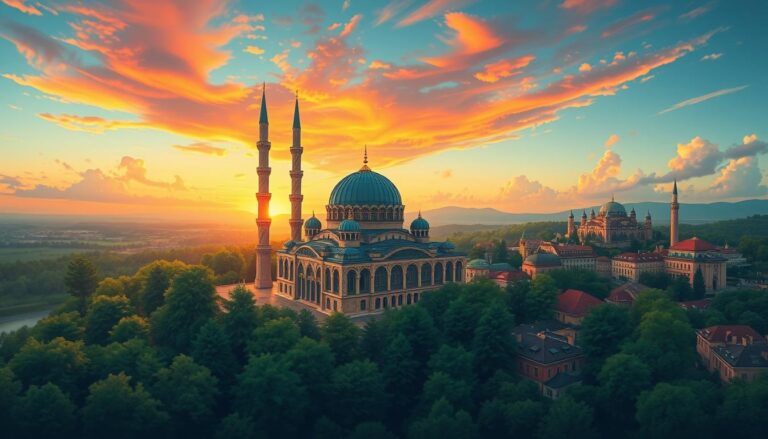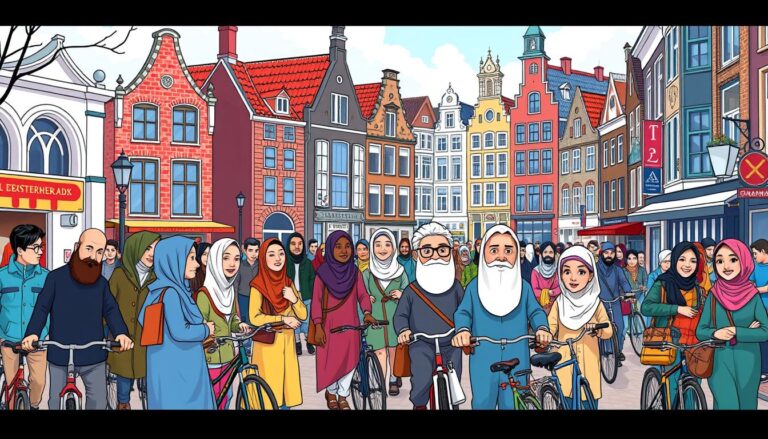Islam in France
According to Pew Research, the Muslim population in France is estimated to be around 8.8% of the total population or around 6 million people. The majority of French Muslims are of foreign origin, with 26% being foreigners and 9 out of 10 having a father born abroad, mostly from former French colonies in North Africa such as Algeria, Tunisia, and Morocco. Islam is the second-largest religion in France after Christianity, and the country has one of the largest Muslim populations in Europe. However, the integration of Islam within French society has faced various challenges, including issues of secularism, discrimination, and representation.
Key Takeaways
- The Muslim population in France is estimated to be around 8.8% of the total population or around 6 million people.
- The majority of French Muslims are of foreign origin, with 26% being foreigners and 9 out of 10 having a father born abroad.
- Islam is the second-largest religion in France after Christianity, and the country has one of the largest Muslim populations in Europe.
- The integration of Islam within French society has faced various challenges, including issues of secularism, discrimination, and representation.
- The use of the veil among Muslim women in France has increased by 55% over ten years, from 2009 to 2020.
Introduction to Islam in France
The presence of Muslims in France has a rich and complex history, dating back to the 8th century when the Umayyad forces conquered parts of southern France during the conquest of Iberia and Gaul. While they eventually withdrew in 732 AD, Septimania remained under Umayyad control until 759. In the 16th century, the Ottoman Empire established a naval base in Toulon, and after the expulsion of the Moriscos from Spain in the early 17th century, around 50,000 Moriscos entered France.
Historical Background of Muslims in France
More recent Muslim immigration to France has been driven by labor migration, primarily from former French colonies in North Africa, starting in the late 1960s and 1970s. Today, the French Muslim population is estimated to be between 3 million to 5.7 million, making up 4% to 10% of the country’s total population.
Demographics of the Muslim Population
France is home to nearly 9% of the country’s population practicing Islam in France. Of the French Muslim community, 26% are foreigners, and 9 out of 10 have a father born abroad. However, the history of Islam in France suggests a much deeper and more complex story, with roots tracing back centuries.
“Muslims in France are less than half as likely to receive a callback for a job compared to Christians with similar credentials.”
Despite this long history, the French Muslim population continues to face challenges, including discrimination and integration issues. As the country grapples with balancing its secular values and the presence of a growing Muslim community, the future of Islam in France remains a complex and evolving landscape.
Diversity Within the French Muslim Community
The French Muslim community is a vibrant and diverse mosaic, reflecting the country’s complex history and the waves of immigration from its former colonies in North Africa and the Middle East. While the largest subgroup is of Algerian origin, the community also includes significant populations from Morocco, Tunisia, and Turkey, as well as smaller numbers of converts and individuals from sub-Saharan Africa.
This diversity is not just a matter of national origins; it also extends to ethnic groups, cultural traditions, and socioeconomic status. According to recent statistics, 50 percent of French Muslims were born French, 24 percent acquired French citizenship, and 26 percent are foreigners. This blend of backgrounds and experiences contributes to the richness and complexity of the French Muslim community.
The diversity within this community is further reflected in their religious practices and observance. While 70 percent of French Muslims claim to buy halal food, the level of adherence to Islamic traditions varies widely, with 23 percent of women reporting “always” wearing the veil, while two-thirds of women say they do not wear it.
National Origins and Ethnic Groups
The French Muslim community is a mosaic of national origins and ethnic groups, including:
- Algerians (the largest subgroup)
- Moroccans
- Tunisians
- Turks
- Individuals from sub-Saharan Africa
- Smaller numbers of converts to Islam
This diversity reflects the country’s colonial history and the ongoing influence of global migration patterns. Understanding the diversity of the French Muslim community, its ethnic groups, and national origins is crucial in navigating the complex social and religious landscape of France.
Religious Practices and Observance
France is home to a diverse Muslim population, with the observance of religious practices of French Muslims varying greatly. According to surveys, the level of observance of Islam in France has increased in recent decades. In 2008, 39% of Muslims in France reported praying five times a day, up from 31% in 1994. Mosque attendance for Friday prayers has also risen, from 16% in 1994 to 23% in 2008.
The Muslim religious practices in France have also seen changes in other areas. Ramadan observance has reached 70% in 2008, compared to 60% in 1994. However, alcohol consumption has declined among French Muslims, from 39% in 1994 to 34% in 2008. The use of the veil by Muslim women has also increased, with a 55% rise between 2009 and 2020, and 26% of Muslim women between the ages of 18 and 49 advocating for its use.
“The French Muslim community is estimated to range between 3 to 6 million, accounting for approximately 5% to 10% of the total French population.”
These trends highlight the evolving nature of religious practices of French Muslims and the observance of Islam in France. As the Muslim population continues to grow, understanding and adapting to these changes will be crucial for policymakers and the broader French society.
Islam in France: Challenges and Controversies
The integration of Islam within French society has faced significant challenges, particularly due to the country’s strong tradition of secularism, known as Laïcité. This principle separates religious and civic life, leading to restrictions on Muslim expressions of faith, such as the banning of the full-face veil (burqa) in public spaces.
Moreover, French Muslims have reported high levels of discrimination, with 42% feeling discriminated against, and this number rising to 60% for Muslim women who wear the veil. Muslims in France also face economic disadvantages, being less than half as likely to receive a callback for a job than Christians with the same credentials. These issues have contributed to the challenges of integrating the Muslim population into French society.
Laïcité and Secularism in French Society
Laïcité, the French model of secularism, has been a source of tension between the state and the Muslim community. This principle, historically directed against the Catholic Church, is now seen as targeting Islam, the most vibrant religion in the country. This has led to a perceived targeting and alienation of Muslims, causing issues related to religious freedoms and the separation of church and state.
Discrimination and Integration Issues
French Muslims face significant discrimination in various aspects of life, including employment and education. The proposed “Islamist separatism” bill in France aims to prohibit civil servants and public sector contractors from wearing religious symbols, potentially impacting Muslim communities. Concerns exist over the perceived targeting and alienation of Muslims if the bill passes, reflecting tensions around religious freedoms and the French secular state.
The challenges of integrating the Muslim population into French society are further exacerbated by long-term trends that have contributed to their marginalization. This has led to feelings of ambivalence towards France and difficulties in recognizing the specificities of Muslims as citizens within the secular framework.
To address these issues, the need to tackle problems within Islam, such as combating Salafism and political Islam, while navigating questions of identity and modernity within the Muslim community, is emphasized as a crucial aspect for resolving the challenges related to Islam in France.
Representation and Organization of Muslims in France
The representation and organization of Muslims in France have been a subject of ongoing efforts and challenges. The French government has attempted to establish a structured representation of the French Muslim community through the creation of the French Council of the Muslim Faith (Conseil Français du Culte Musulman – CFCM) in 2003.
The French Council of the Muslim Faith (CFCM)
The CFCM is a private non-profit association without any special legal status, but it is informally recognized by the national government. The CFCM is headed by the rector of the Paris Mosque, Dalil Boubakeur, and has faced criticism for favoring more extreme sectors of Muslim representation, such as the Union of Islamic Organizations of France (UOIF).
Despite these efforts, Muslims remain underrepresented in French politics, making up less than 0.8% of the Senate and National Assembly, despite accounting for 6% to 10% of the country’s population. The organization of the Muslim community in France and the representation of French Muslims remain key challenges in the ongoing integration and recognition of this religious minority.
“The French Council of the Muslim Faith (CFCM) is a private non-profit association without any special legal status, but it is informally recognized by the national government.”
Islam in France and the War on Terrorism
The aftermath of the 9/11 attacks in the United States sparked speculation that France’s Muslim-populated suburbs might harbor “sleeper cells” or America-haters. However, the French Muslim community overwhelmingly condemned the terrorist attacks. A survey revealed that 92% of French Muslims agreed that Islam condemns terrorist acts, and the same number said the hijackers were not legitimately Muslim. Furthermore, 70% of French Muslims approved of their country’s participation in a military response, only slightly lower than the overall French population’s support.
Despite these efforts, the French Muslim community has faced increased scrutiny and surveillance. The French government has monitored at least 75 mosques, reflecting the heightened concerns over the potential radicalization of Muslim youth. The book “Terror in France” by Gilles Kepel, a political science professor, highlights the evolution of Islamist terror in France, shedding light on the social fractures that make sections of the youth vulnerable to radicalization.
“The book captures the evolution of Islamist terror in France at a granular level, providing detailed accounts of particular terrorists and their backgrounds, and shedding light on French-Muslim milieus that gave rise to them.”
France has been actively engaged in the global fight against terrorism. The country has participated in multilateral discussions and initiatives, such as the Global Counterterrorism Forum (GCTF) and the “No Money for Terror” conferences, to combat foreign terrorist fighters and disrupt terrorist financing. Additionally, France has been involved in military operations in Afghanistan, Iraq, Syria, and the Sahel region, focusing on stabilization and reconstruction efforts to prevent the emergence and strengthening of terrorist actors.
The French Muslim community’s response to the war on terrorism and the government’s counterterrorism measures have been a subject of intense debate and scrutiny. As the Muslim population in France continues to grow, the balance between security concerns and preserving the rights and integration of this community remains a critical challenge for the country.
The Role of Mosques and Islamic Centers
Mosques and Islamic centers play a vital role in the lives of French Muslims, serving as community hubs and places of worship. However, there is a significant shortage of adequate prayer spaces in France. With only around 1,500 prayer spaces, the vast majority of which can accommodate fewer than 150 people, the lack of sufficient venues for religious observance has led to challenges for the French Muslim community.
In comparison, France boasts 40,000 Catholic buildings, 957 temples, and 82 synagogues, highlighting the disparity in available spaces for different religious groups. This shortage of mosques and prayer spaces has contributed to tensions and difficulties for French Muslims in practicing their faith.
Shortage of Mosques and Prayer Spaces
The scarcity of mosques and prayer spaces in France is a pressing issue. Despite efforts to establish French-trained imams, foreign imams continue to operate in high numbers, with around 151 imams sent by Turkey, 120 by Algeria, and 30 by Morocco to serve within the French Muslim community.
Moreover, the construction of mosques in France has often relied on funding from countries such as Algeria, Morocco, Turkey, and Saudi Arabia, further highlighting the influence of external actors on the French Muslim landscape. This reliance on foreign resources has raised concerns about the potential for external interference in the religious expression of French Muslims.
“The French Muslim chaplaincy is relatively well-organized in the army, however, they remain weak in prisons, hospitals, and practically nonexistent in public education.”
The shortage of prayer spaces is a significant challenge for French Muslims, with a poll conducted in 2021 revealing that more than two-thirds of respondents opposed public funding for religious buildings or ministries. This sentiment is further reflected in the French government’s recent efforts to regulate foreign funding for religious organizations, aiming to limit external influence on the country’s religious landscape.
Despite these challenges, the role of mosques and Islamic centers in France remains vital, serving as hubs for community engagement, religious observance, and cultural expression. Addressing the shortage of prayer spaces and finding a balance between preserving the country’s secular principles and accommodating the religious needs of its diverse population will be a crucial task for French policymakers in the years to come.
The Future of Islam in France
The future of Islam in France remains a complex and uncertain landscape. As the Muslim population continues to grow, the integration of Islam within French society faces significant challenges, including issues of secularism, discrimination, and representation.
Recent statistics paint a nuanced picture. While Europe’s Muslim population is projected to rise significantly by 2050 under various migration scenarios, the role of Islam in French society is hotly debated. The rise of nationalist parties like the National Rally, which secured a third of the parliamentary vote, highlights the tensions surrounding the future of Islam in France.
Attempts by the French government to organize the Muslim community through the French Council of the Muslim Faith (CFCM) have faced criticism, and the underrepresentation of Muslims in French politics and institutions remains a concern. The increasing visibility of Muslim religious and cultural practices, such as the rise in veil usage, has also sparked controversies.
As France navigates these complex issues, the successful integration of its Muslim population will be crucial for the country’s social cohesion and future. Addressing the challenges facing the French Muslim community, such as discrimination and marginalization, will be key to shaping the path forward.
Ultimately, the future of Islam in France is inextricably linked to the nation’s ability to find a balance between its secular ideals and the diverse religious and cultural identities of its population. The road ahead may be fraught with challenges, but the successful integration of Islam could strengthen France’s social fabric and contribute to a more inclusive, cohesive future.
Conclusion
As the article has explored, France is home to one of the largest Muslim populations in Europe, with an estimated 6 million Muslims making up around 8.8% of the country’s total population. The presence of Muslims in France dates back centuries, but recent waves of immigration from former French colonies in North Africa have significantly increased the size and diversity of the French Muslim community.
However, the integration of Islam within French society has faced significant challenges, particularly due to the country’s strong tradition of secularism and the discrimination and economic disadvantages experienced by many French Muslims. The rise of the “Islamic problem” in France has been attributed to Muslims being at the core of immigration, class and economic integration, and ethnicity and multiculturalism issues, leading to a clash of civilizations narrative.
The future of Islam in France remains a topic of ongoing debate, as the country navigates the complex issues of religious representation, cultural integration, and social cohesion. Achieving a more inclusive integration of Muslims within the French national community would require challenging the current liberal and secularist narratives, and addressing the underlying issues of discrimination and social inequality that have impeded the full integration of the Muslim population.
Source Links
- Islam in France
- Islam in France: Challenges and Perspectives
- A French Islam is possible
- Religious Discrimination against Muslims in France – Ballard Brief
- Can Islam Be French?
- The Facts and Figures on French Muslims
- Islam in France: The Shaping of a Religious Minority
- France – United States Department of State
- Islam in France: The French Way of Life Is in Danger
- French Views of Religious Freedom
- The Long and Troubled History of the French Republic and Islam
- France is proud of its secularism. But struggles grow in this approach to faith, school, integration
- Secularism & Islam in France
- Macron struggles to find a representative for Islam in France
- France – United States Department of State
- Terror in France
- Terrorism: France’s International Action
- France, the United States and the ""War on Terrorism""
- Islam, made in France? Debating the reform of Muslim organizations and foreign funding for religion
- French row over mosque isn’t simply about state financing – it runs deep into Islamophobia and French secularism
- An Inside Look at France’s Mosque Surveillance Program
- Europe’s Growing Muslim Population
- France’s Muslims fear the worst with far right on precipice of power
- Why Do the French Fear Islam?







